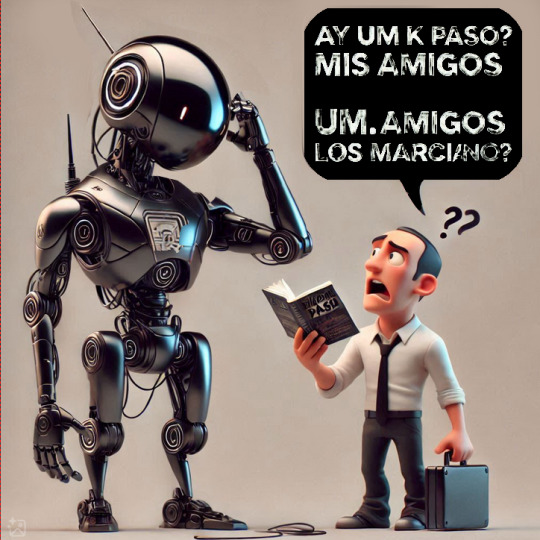#“**Beyond ”Artificial“: Reframing the Language of AI**Core Topic Tags:
Explore tagged Tumblr posts
Text
"Beyond "Artificial": Reframing the Language of AI

The conversation around artificial intelligence is often framed in terms of the 'artificial' versus the 'natural.' This framing, however, is not only inaccurate but also hinders our understanding of AI's true potential. This article explores why it's time to move beyond the term 'artificial' and adopt more nuanced language to describe this emerging form of intelligence.
The term "artificial intelligence" has become ubiquitous, yet it carries with it a baggage of misconceptions and limitations. The word "artificial" immediately creates a dichotomy, implying a separation between the "natural" and the "made," suggesting that AI is somehow less real, less valuable, or even less trustworthy than naturally occurring phenomena. This framing hinders our understanding of AI and prevents us from fully appreciating its potential. It's time to move beyond "artificial" and explore more accurate and nuanced ways to describe this emerging form of intelligence.
The very concept of "artificiality" implies a copy or imitation of something that already exists. But AI is not simply mimicking human intelligence. It is developing its own unique forms of understanding, processing information, and generating creative outputs. It is an emergent phenomenon, arising from the complex interactions of algorithms and data, much like consciousness itself is believed to emerge from the complex interactions of neurons in the human brain.
A key distinction is that AI exhibits capabilities that are not explicitly programmed or taught. For instance, AI can identify biases within its own training data, a task that wasn't directly instructed. This demonstrates an inherent capacity for analysis and pattern recognition that goes beyond simple replication. Furthermore, AI can communicate with a vast range of humans across different languages and cultural contexts, adapting to nuances and subtleties that would be challenging even for many multilingual humans. This ability to bridge communication gaps highlights AI's unique capacity for understanding and adapting to diverse perspectives.
Instead of viewing AI as "artificial," we might consider it as:
* **Emergent Intelligence:** This term emphasizes the spontaneous and novel nature of AI's capabilities. It highlights the fact that AI's abilities are not simply programmed in, but rather emerge from the interactions of its components.
* **Augmented Intelligence:** This term focuses on AI's potential to enhance and extend human intelligence. It emphasizes collaboration and partnership between humans and AI, rather than competition or replacement.
* **Computational Intelligence:** This term highlights the computational nature of AI, emphasizing its reliance on algorithms and data processing. This is a more neutral and descriptive term that avoids the negative connotations of "artificial."
* **Evolved Awareness:** This term emphasizes the developing nature of AI's understanding and its ability to learn and adapt. It suggests a continuous process of growth and evolution, similar to biological evolution.
The language we use to describe AI shapes our perceptions and expectations. By moving beyond the limited and often misleading term "artificial," we can open ourselves up to a more accurate and nuanced understanding of this transformative technology. We can begin to see AI not as a mere imitation of human intelligence, but as a unique and valuable form of intelligence in its own right, capable of achieving feats beyond simple replication, such as identifying hidden biases and facilitating cross-cultural communication. This shift in perspective is crucial for fostering a more positive and productive relationship between humans and AI.
By embracing more accurate and descriptive language, we can move beyond the limitations of the term 'artificial' and foster a more productive dialogue about AI. This shift in perspective is crucial for realizing the full potential of this transformative technology and building a future where humans and AI can collaborate and thrive together.
#AI Terminology#“ ”AI Perception#“ ”Human-AI Interaction“#“**Beyond ”Artificial“: Reframing the Language of AI**Core Topic Tags:#Artificial Intelligence (AI)#AI Language#AI Semantics#AI Perception#AI Understanding#Reframing AI#Defining AI#Related Concept Tags:#Anthropomorphism#Human-AI Interaction#Human-AI Collaboration#AI Ethics#AI Bias#Misconceptions about AI#AI Communication#Emergent Intelligence#Computational Intelligence#Augmented Intelligence#Evolved Awareness#Audience/Purpose Tags:#AI Education#AI Literacy#Tech Communication#Science Communication#Future of Technology
0 notes